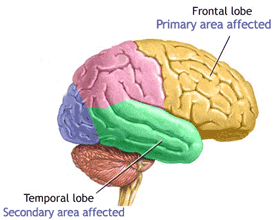Physicians in five countries agree: Those who diagnose and treat patients with Alzheimer’s disease need more – and better – tools to handle the job.
Nearly half of those who took part in an international survey said that Alzheimer’s is often misdiagnosed, eating away at the window when early treatment could temporarily slow disease progression. Lack of a definitive diagnostic tool is the biggest barrier to getting patients the help they need as quickly as possible, and, just as importantly, preparing for the challenges that lie ahead.
“This is a surprising, but understandable, problem, given the complexity of Alzheimer’s,” said Graeme Leiser, a market research analyst for Eli Lilly and Company’s Alzheimer’s Disease Team, during a Sept. 19 teleconference to announce the survey results. Patients and families contribute to the problem because they’re afraid to admit Alzheimer’s might be a possibility and because it’s tough to communicate effectively at such a stressful moment in their lives.
“Nearly half of those interviewed in the U.S. indicated that patients and caregivers are not completely forthcoming with information about their symptoms,” Mr. Leiser said. “There is a very strong emotional reaction when this diagnosis is delivered, and a stigma associated with it that’s very difficult to face.”
Eli Lilly funded the survey, collaborating with Alzheimer’s Disease International (ADI), the umbrella group that works to strength and support Alzheimer’s associations around the world. The survey polled almost 1,000 physicians in five countries – the United States, United Kingdom, France, Italy, and Japan – about the biggest barriers they face in diagnosing and caring for patients with the disease. The survey cohort included primary care physicians, neurologists, psychiatrists, and geriatricians who care for patients on a regular basis.
The survey identified three common barriers to making a formal diagnosis of Alzheimer’s: the lack of definitive tests; communication problems between physician, patients, and their families; and patient denial of symptoms, Mr. Leiser said.
Lack of a definitive diagnostic tool leads to many problems, the survey found.
“We saw that nearly half of all the physicians believed that Alzheimer’s is often misdiagnosed, and nearly half said it was often or always diagnosed too late to intervene in any meaningful way.”
Early intervention doesn’t just mean prescribing drugs that may slow progression. “This is an important point because some symptoms are due to other dementias, some of which are curable,” Mr. Leiser said. “And all of these dementias require different management, which may also be different from the way Alzheimer’s is treated.”
Timely recognition of Alzheimer’s also helps patients and families prepare for the years ahead. More than half of U.S. physicians said it helps them educate families and manage their expectations.
But early diagnosis comes with its own problems, the survey found. Most physicians (61%) said patients and families receive an enormous emotional shock when they get the news, which forces them to confront the social and personal stigma associated with Alzheimer’s.
“In the U.S., physicians said the loss of freedom was the most important stigma” – significantly different than the opinions in other countries. Physicians in the United Kingdom, for example, said their patients’ and families’ biggest problem was dealing with the negative social opinion of Alzheimer’s.
These perceptions are a huge contributor to the barriers to care seen all over the world, said Marc Woortman, executive director of ADI.
“This survey uncovered many insights that will not only help families and physicians work together for the patient, but also add to the effort to change the way people perceive Alzheimer’s disease.”
In fact, ADI’s 2012 global report on Alzheimer’s issues focuses strongly on stigma and suggests ways the international community can begin to breach them.
“By destigmatizing this illness, we can pave the way for earlier and more effective communication. This will help ease the burden of patients, and improve how society looks at the disease.”


0 Comments